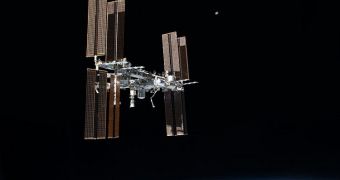Cooperation and collaboration in space exploration are absolutely necessary if new, ambitious projects are to be set in motion, the leaders of multiple space agencies agree. Budgets are currently very low, compared to historic levels, while mission costs are skyrocketing.
Implementing new technologies on advanced spacecraft requires a lot of work, hefty investments, as well as a lot of time. Funds need to roll, and the current financial climate does not allow for that to happen. As such, agencies must share the burden of developing advanced missions to other worlds.
The conclusion belongs to the heads of seven space agencies, who met last month in Colorado Springs, at the 28th National Space Symposium. Cooperation is strongly recommended particularly because more and more countries are beginning to develop their own space programs.
The meeting included officials from NASA, German Aerospace Center (DLR), the Japan Aerospace Exploration Agency (JAXA), the Canadian Space Agency (CSA), the Mexican Space Agency (MSA), the Netherlands Space Office (NSO) and the UK Space Agency (UKSA).
The panel discussion was moderated by Dumitru Prunariu from the Romanian Space Agency (ROSA). He mentioned the International Space Station as “the brightest example of long and fruitful cooperation by space agencies,” suggesting that this type of projects may represent the future of exploring space.
The $100 billion project took 11 years to complete, and required the involvement of 15 countries. It is now capable of supporting a permanent crew of 6 astronauts, and has the length of a football field.
“Here at home, we cooperate closely with not only other U.S. government agencies, but across the globe. Let there be no confusion, international collaboration is critical to America and NASA,” NASA Deputy Administrator, Lori Garver, told counterparts present at the meeting.
“There have been remarkable changes in the international space landscape in the last decade. These changes have been both amongst traditional players, and in the growth of the number of new players,” CSA Vice President, Chummer Farine, argued.
“Some 54 countries have been involved, in some way or another, in the International Space Station. We will need to continue to work to ensure that as we go forward, we remain open and flexible so that we can acknowledge national needs while ensuring cooperative global efforts,” the official added.
Farina concluded by saying that the returns of an international space project would far exceed those attainable by any individual space agency. In the official's opinion, this is one of the strongest arguments for promoting cooperation in exploring and utilizing space for the benefit of all mankind, Space reports.

 14 DAY TRIAL //
14 DAY TRIAL //